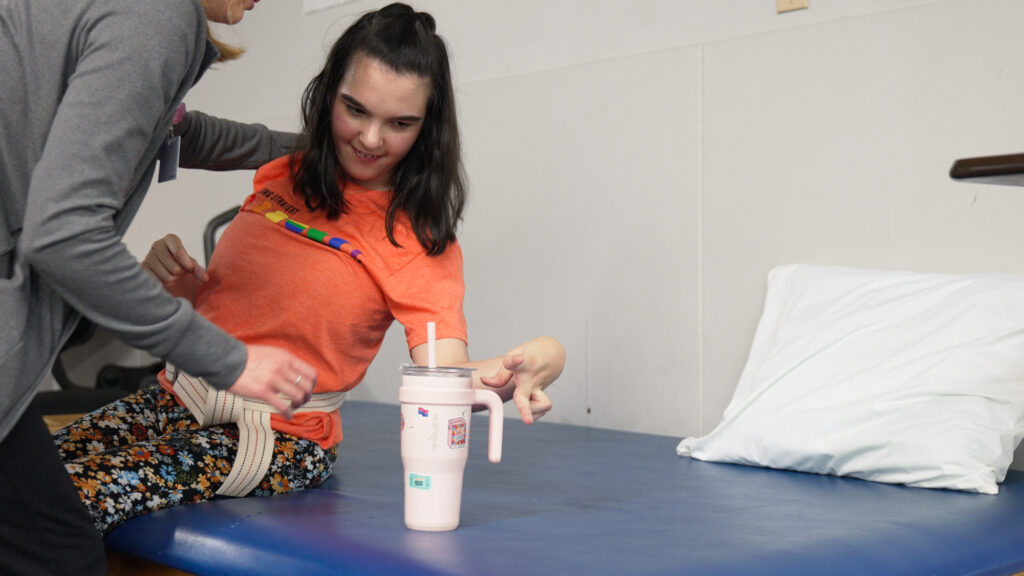
When a loved one is recovering from a complex condition or injury, you want to know they’re receiving the highest quality of care. Your loved one may require several hours of therapy each day, but a skilled nursing facility may not always be the best option. These facilities might not offer enough one-on-one therapy, and your loved one may prefer not to stay in a hospital setting overnight. Additionally, many physical and occupational therapy practices offer only limited outpatient rehab services.
The human body doesn’t heal on a set schedule, and in many healthcare settings, care is too compartmentalized. Facilities, programs and individual care providers have limitations that create treatment gaps. “Continuity of care” isn’t as simple as it sounds.
Fortunately, some outpatient day rehab programs take a more personalized and comprehensive approach. Medicare maintains regulatory standards for Comprehensive Outpatient Rehabilitation Facilities (CORFs), just as it does for hospitals and skilled nursing facilities. These facilities are immersive therapeutic environments where patients receive a tailored treatment plan that includes multiple therapies and other care under one roof. And patients go home at night! They work on skills to meet all of their rehab goals and plan for all-around wellness after discharge.
This article provides an in-depth explanation of what it means to be a Comprehensive Outpatient Rehabilitation Facility and showcases the exceptional standards that set Ability KC apart.
What is Comprehensive Outpatient Rehabilitation Facility (CORF) certification?
A CORF must provide physical therapy and social or psychological services to accept payment from Medicare or Medicaid. Assessments must take place with other coordinated care and therapeutic services in one location. But physical therapy, occupational therapy and speech therapy can take place at other locations.
CORF certification is different from CARF accreditation. CARF is the Commission on Accreditation of Rehabilitation Facilities (CARF). Ability KC has both CORF certification and CARF accreditation.
What are CORF certification requirements and processes like?
Surveyors follow strict processes to check for compliance with federal guidelines. This holds CORFs to a high level of quality patient care and safety standards. Facilities are surveyed every six years to maintain certification.
A certified Comprehensive Outpatient Rehabilitation Facility must provide the following:
- Creation of a treatment plan that includes any other facility-managed activities and review of this plan with the patient and family
- Medical director supervision of nonphysician staff that consult with patients
- Physical therapy services
- Social or psychological services
What makes Ability KC exceed national and international standards?
We understand that patients in rehab often have complex medical conditions and unique needs, making them vulnerable on various levels. We are deeply honored by the trust that each patient and their family place in us. We are committed to never taking advantage of anyone in need and will do everything possible to protect their dignity and well-being.
We also realize that injuries and complex medical diagnoses can happen to anyone. They don’t discriminate based on age or socioeconomic status. Ability KC provides financial assistance of over $5 million in services each year to people who are uninsured or who otherwise couldn’t afford our rehab services.
At Ability KC, we take an integrated approach to go above and beyond the basic requirements that every other CORF must follow. Each of our patients gets a care plan that’s tailored to their specific condition and their rehab goals. They work with a collaborative team of care providers who continuously collaborate on their progress.
Patients and their families are considered primary members of their own therapy team. Patient therapy teams may include the following providers:
- Physical therapists and PT assistants
- Occupational therapists and OT assistants
- Speech language pathologists
- Case managers
- Social workers
- RNs and other nurses
- Rehab psychologist or neuropsychologist
Learn more about comprehensive rehab programs at Ability KC
After a serious illness or an accident, finding the right care at the right time can be stressful. We strive to create smooth transitions, both at the beginning and end of a patient’s time at Ability KC. After an individual is discharged from our outpatient rehabilitation program(s), they can continue to build on their progress in one of our specialty programs. We partner with primary care providers and referring specialists for support across the continuum of care.
Are you currently looking for a local rehabilitation program? Take a look at our Admissions Guide and please get in touch if you have any questions. There may be a lot of hard work to be done, but we want to support you every step of the way.